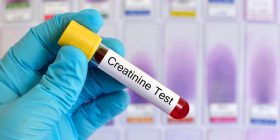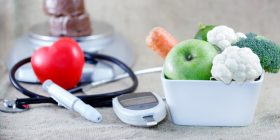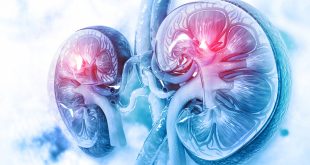If you have diabetes and kidney disease, or are at risk, there are some important issues you should discuss with your doctor. Read on to learn more about talking with your healthcare team about diabetes and kidney disease.
Targets
Meeting your diabetes targets – including blood sugar, cholesterol and blood pressure – is key to preventing diabetes complications, including kidney disease. Talk with your doctor about your individual diabetes targets and how to meet them.
Blood sugar and A1C
The table below lists the Diabetes Canada recommendations for A1C and blood sugar targets.
| Target | A1C* | Blood sugar
before a meal |
Blood sugar two hours after the start of a meal |
| Most adults | 7% or lower | 4 to 7 mmol/L | 5 to 10 mmol/L (5 to 8 mmol/L if A1C targets are not being met) |
| Adults with a low risk of hypoglycemia, to reduce the risk of kidney disease | 6.5% or lower |
*A1C may not be as accurate a measurement in moderate to severe kidney disease
Cholesterol and blood pressure
The target for low-density lipoprotein cholesterol (the “bad” cholesterol) is less than 2 mmol/L. The target for blood pressure is less than 130/80 mm Hg.
Medications
If you have kidney disease, or are at risk for it, your healthcare team may prescribe medications. The main treatment is medicine that lowers your blood pressure and prevents or slows damage to your kidneys. The two types of medication that are most often prescribed for this purpose are ACE inhibitors (short for angiotensin-converting enzyme inhibitors) and ARBs (short for angiotensin II receptor blockers).
More recently, newer medications have been shown to help support kidney health in people with diabetes and albuminuria.
Speak with your diabetes healthcare team regarding which medications might be most appropriate for you.
Sick day management
Taking good care of yourself is very important if you have diabetes and kidney disease and become ill. Learn more about sick day management here.
Other factors
Weight management, including what an ideal weight is for you, tips on how to lose weight (if needed) and how to maintain a healthy weight.
Not smoking, including how to access resources to help you quit.
Nutrition, including food choices for eating a heart- and kidney-healthy diet. If you have kidney disease, you may be told to limit salt, phosphorus, potassium and protein in your daily diet. Your healthcare team – particularly a dietitian – can help you make the right choices for your situation.
Your checklist for kidney health
A1C targets (A1C may be falsely lower in kidney disease)
Blood sugar targets (These targets are accurate in kidney disease)
Cholesterol target
Blood pressure target
Medications that may be used
Other factors
|
Download this handy table before your next diabetes-related visit with your healthcare team. It lists the key issues to discuss with your doctor about diabetes and kidney disease.
This article was sponsored by Janssen Inc.
 Diabetes Care Community Learn, connect and care
Diabetes Care Community Learn, connect and care







